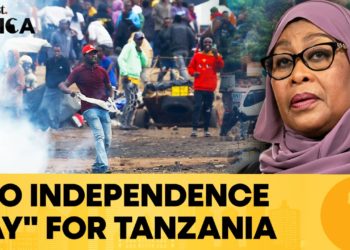For years, Kenya’s public procurement system has been riddled with accusations of favoritism, inflated costs and corruption. Government contracts, which are often awarded behind closed doors, have been a fertile ground for corruption which leads to massive leakages of public funds and denying potential contractors a fair shot. However, in a bold step towards curbing entrenched corruption and promoting accountability, the government of Kenya has rolled out a mandatory shift to electronic procurement systems across all government institutions such as ministries, departments and respective agencies. This move requiring public entities to use the Public Procurement Regulatory Authority’s e-platform is a structural reform with profound implications for governance and economic inclusivity.
According to the Public Procurement Regulatory Authority, Public procurement in Kenya accounts for between 10% to 13% of the GDP. This demonstrates that a greater portion of the annual general government expenditure is processed through public procurement. Yet, for years, the sector has been riddled with inefficiency, political patronage, conflict of interest and fraud. High-profile scandals such as the KEMSA COVID-19 supplies have the need for immediate reform because they outline the invisible cost borne by the public due to opaque processes.
The new system mandates that all procurement processes, that is from the tender advertisement to the evaluation and award, must be conducted via the National e-Procurement System which is hosted by Public Procurement Regulatory Authority. It is designed to make public contracts traceable and open. This will aid in enhancing transparency which will reduce room for collusion and ghost suppliers since each tender will be visible to oversight bodies and also the general public. Second, there will be improved competition and inclusion, where e-tendering creates a level playing field where all eligible suppliers, can access and respond to opportunities. Third, increased efficiency and cost savings where digitization will reduce administrative burdens and significantly cut time and cost of procurement cycles.
To realize the full potential of e-procurement, Kenya must go beyond launching the platform. It must institutionalize integrity, accessibility and accountability at every stage of the procurement lifecycle. This can be achieved through equipping and training of procurement units, where they must not only know how to use the platform but also how to align procurement plans with legal and ethical frameworks. Second, strengthening cybersecurity infrastructure. This can be achieved by securing the system through third-party penetration testing, blockchain-based bid sealing and robust access controls to ensure zero data manipulation. Stipulate the legal consequences for bypassing the system. Codify clear penalties for public officials who award contracts outside the e-platform. This accountability must be swift, public and proportionate to act as a deterrent.
The digital transition in Kenya’s public procurement system is an integral shift in how government interacts with its citizens and resources. By closing the door on secrecy and corruption, and opening a window to transparency and fairness, Kenya is taking a bold step toward restoring public trust. For e-procurement to deliver on its promise, it must be accompanied by political will, civic vigilance, and cultural change.

















